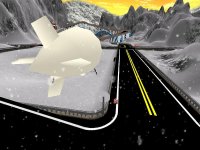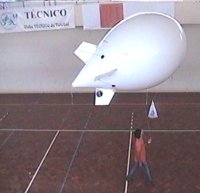|
In this project have been tackling an urban
search-and-rescue (USAR) case study: we focus on
planning under uncertainty methodology and
algorithms for heterogeneous teams of robots
involved in USAR tasks. The task of the robot team
is to search for victims in an urban area, for
instance after an earthquake disaster. Initially,
the location of potential victims is unknown,
which leads to uncertainty in a robot's
observations: the robot is not able to tell (with
high probability) whether a victim is present at a
particular location, until it is close to the
location. The robots are equipped with a
high-level topological map of the area, a graph
representation in which nodes can denote locations
and the edges are possible routes a wheeled robot
can take. As the robots explore the area, sharing
information regarding located victims or blocked
routes will increase team performance. However,
the robots will have to cope with a potentially
unreliable ad hoc wireless network. The
uncertainty regarding the current and future
ability to communicate has to be taken into
account in a robot's plan. We implement our
algorithms in a realistic simulator, USARSim.
|
|


|

